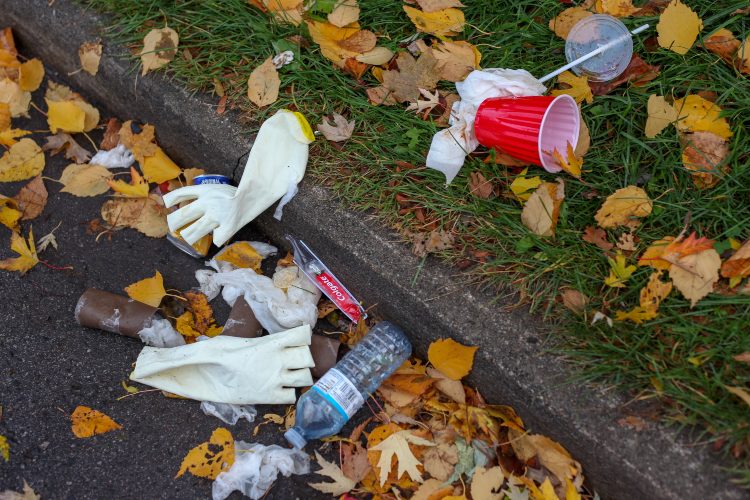There’s been much debate and discussion lately about the concept of gender stereotypes.
Specifically, we’re now taking a closer look at the expectations and social constructs that both males and females feel forced to exist within. This has naturally given rise to a dialogue concerning toxic masculinity.
In short, this is a phrase used to describe the cultural view of manhood, which can be both narrow and repressive. It’s the idea that men are defined by an attraction to violence, sex, and aggression, prioritizing strength, and suppressing any weaknesses.
What does this mean for men struggling with addiction? How does it affect their treatment journey and those outcomes?
Read on as we explore the answers around this topic and ways we can move toward a healthier future.
What Is Toxic Masculinity?
Toxic masculinity is the notion that men are defined by the level of power and force they exert. In this case, strength is regarded as king, while emotions are considered weaknesses.
From their earliest years, boys are taught by society that crying, showing empathy, or being scared in public makes them a baby. However, roughhousing is expected and encouraged. As they grow older, this gender role becomes even more defined.
In their adolescent years and beyond, men learn that sex and brutality are the yardsticks by which society will measure them. If they possess or exhibit traits considered “feminine,” including being emotionally vulnerable or not being hypersexual, peers and media alike demasculinize them.
This damaging and destructive construct can seep into many areas of their lives, affecting their relationships, workplace performance, friendships, and more.
It can also influence their susceptibility to addiction, as well as make it more challenging to quit. Next, let’s explore this link in greater detail.
Masculinity and the Psychology of Drug Abuse
Researchers have long noted that there are many drugs that not only deliver a physical “high” to the user but also impact their psychological state, as well. For example, both heroin and methamphetamine release dopamine. This substance makes the body euphoric but also triggers feelings of invincibility and superiority.
Over time, addicts grow attached to how they feel when they’re under the influence.
Consider those addicted to opiates. They might have started taking the drugs purely for pain relief, but they soon found that they helped diminish their anxiety and depression.
As they took them more often, they discovered these people felt miserable when they weren’t “high” and became highly reliant on the drugs in a psychological sense.
What does this have to do with toxic masculinity?
If they feel any frustration or shame over not living into the expectations of “manhood,” those mental health issues can cause men to start abusing substances in the first place. Then, the moment the drugs enter their body, they transform and feel invincible, catalyzing both a physical and emotional change.
Suddenly, deeply-rooted emotions of weakness give way to feelings of power and strength. They feel superior in a way they never have before.
The only problem? That high only lasts for a little while. When it wears off, these men come crashing back into reality, where feelings of inadequacy can be worse than ever before. Thus, they continue abusing drugs to maintain how they initially felt.
The Issue of Alcohol Abuse
While drug abuse is often linked to a personal desire to rise above feelings of ineptitude, alcohol abuse is more social.
Consider how modern society rewards and encourages men to drink heavily. From beer commercials to frat parties, the notion that “manly” men love to unwind with a cold one is one ingrained in our psyche by society. Alternatively, men who choose to abstain are looked at as wimps.
Thus, it comes as no surprise that the Centers for Disease Control and Prevention (CDC) reveals that men are more likely than women to suffer from alcoholism. They’re also twice as likely to binge drink. To “keep up with the boys” and maintain their social standing, many men give in to the pressure to drink, even if they don’t enjoy the activity.
Shame and Treatment
In the same way that toxic masculinity can shame men into abusing drugs and alcohol in the first place, it can also make it more difficult for them to quit.
Expressions such as, “Why can’t you just stop?” or “Can’t you man up and face it?” can leave them feeling even more incapable than before. It can be difficult for even well-meaning loved ones to understand that the issue runs far more profound than physical dependence. It’s psychological as well, likely fueled by years or even decades of pent-up emotions.
This can make it more daunting for men to seek treatment for their drug abuse, as it sends the signal that they couldn’t “handle” the issue on their own. At the same time, they’re more likely to relapse once they complete their treatment program. Though there are many reasons behind this statistic, one reason is that women are more likely to participate in group therapy than men.
This is because toxic masculinity has taught men that sharing their pain, hurt, and past trauma can make them look weak. Thus, they’re more inclined to eschew social activities such as group therapy, where their vulnerabilities are even more exposed.
Moving Past Barriers Toward a Healthier Outcome
There’s no denying that toxic masculinity is one of the adverse outcomes of a society bent on restricting individuals into tightly-formed constructs.
When they fail to fit into those boxes (or try to escape them), men are especially vulnerable. Though this isn’t the only reason they might turn to drugs or alcohol, it can play a significant role. Then, once they’re hooked, the same voices that tell them they weren’t good enough in the first place grow even louder, derailing their treatment efforts.
At Realign Detox, we’re out to change this narrative.
We provide comprehensive detox services and treatment services designed to help recovering addicts reclaim their lives. Along the way, we’ll address and destroy damaging biases, including gender stereotypes, that could impede progress.
Contact us today to learn more, and let’s take this next step together.



